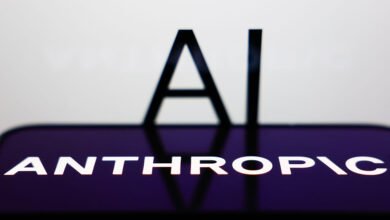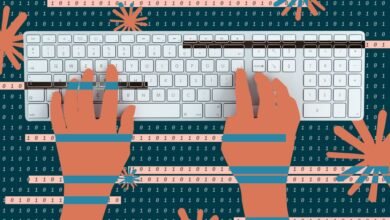Anthropic Wins Key AI Copyright Case, Still Faces Piracy Trial

▼ Summary
– A court ruled that Anthropic’s use of copyrighted works to train its AI models qualifies as “fair use,” setting a precedent for other AI copyright lawsuits.
– Judge Alsup emphasized that AI training is “transformative” under fair use doctrine, comparing it to human learning despite significant memorization.
– The case, filed by authors alleging copyright infringement, marks the first detailed ruling on fair use in generative AI copyright disputes.
– While Anthropic won on fair use, it faces a trial over allegations of pirating books to build its training library, which the judge deemed unlawful.
– The ruling comes from Judge Alsup, who has notable expertise in fair use cases, including the landmark Google v. Oracle trial.
Anthropic has secured a significant legal win in a high-profile AI copyright dispute, marking a pivotal moment for the tech industry as similar cases continue to unfold nationwide. A federal court ruled that the company’s use of copyrighted materials to train its AI systems qualifies as fair use, setting an important precedent for how intellectual property laws apply to machine learning.
Judge William Alsup, overseeing the case in California’s Northern District, emphasized the transformative nature of AI development in his decision. “The technology represents one of the most groundbreaking advancements of our era,” he stated, clarifying that training large language models (LLMs) doesn’t merely replicate original works but creates entirely new functionalities. Legal experts note this is the first detailed judicial analysis of fair use in generative AI litigation, with implications for pending lawsuits across the sector.
The ruling stems from a class action filed by authors accusing Anthropic of improperly using their books to train its models without compensation. While the court sided with the company on the fair use question, it left the door open for a separate trial regarding allegations of piracy. Before shifting to legally acquired texts, Anthropic amassed a vast collection of over seven million pirated books, maintaining them in its database even after discontinuing their use for training. Judge Alsup agreed with plaintiffs that the company should have paid for these materials, ensuring the case will proceed to trial on that specific issue.
Legal observers highlight the judge’s expertise in copyright matters, given his prior involvement in the landmark Google v. Oracle case. The outcome of the upcoming piracy trial could further shape how AI firms handle data sourcing, balancing innovation with ethical and legal responsibilities.
Neither Anthropic nor the plaintiffs’ legal team provided immediate comments following the ruling. The case, Bartz v. Anthropic, remains one to watch as it navigates uncharted territory in AI, copyright law, and fair use doctrine.
(Source: Wired)





